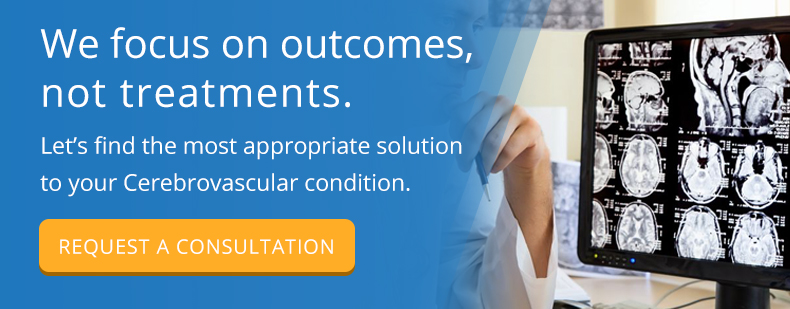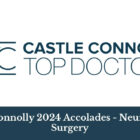Carotid artery disease is responsible for over 700,000 strokes annually in the US, and many people have plaque buildup in the carotid artery that puts them at risk for stroke. To reduce that risk and keep blood flowing to the brain, doctors may recommend a carotid endarterectomy – a relatively noninvasive surgical procedure that can cut stroke risk by half in people who have no stroke symptoms.
Carotid endarterectomy surgery is one of the most common treatments for carotid artery disease, and without complications, most people can get back to normal activities within a few weeks of having the procedure. If your neurosurgeon in New Jersey has recommended carotid endarterectomy, here’s a look at what to expect at every stage of your recovery.
Treating Carotid Artery Disease with Carotid Endarterectomy
The carotid arteries are large arteries in the neck that supply oxygen-rich blood to the face and brain. However, plaque (a waxy substance made up of fatty deposits, dead cells and other debris) can accumulate in the artery walls, causing narrowing that restricts blood flow. Pieces of plaque can also break free and block blood vessels completely, causing a stroke.
Carotid artery disease is typically diagnosed with a carotid ultrasound, which measures the rate of blood flow through the arteries and identifies areas affected by plaque. When a carotid ultrasound detects a moderate or severe amount of blockage, particularly if a person has already experienced a stroke or “mini-stroke,” neurosurgeons may recommend carotid endarterectomy.
How Long Does Carotid Endarterectomy Surgery Take?
Carotid endarterectomy surgery takes about an hour under general anesthesia. Your neurosurgeon makes an incision in your neck to expose the affected areas of the carotid artery, then peels the plaque away from the artery wall so that blood can flow normally again. In some cases, the artery may also need to be patched with an artificial material, or with tissue from another part of the body. When the repair is complete, the incision is sealed or stitched, and your recovery can begin.
Recovery in the Hospital
Depending on circumstances such as your age and any other health conditions you may have such as high blood pressure or diabetes, you can expect to recover in a New Jersey hospital for one to two days after the procedure, or longer if complications occur. During your hospital stay, you’ll be monitored for potential complications such as heart attack or stroke, and to check the progress of your healing. You’ll be given medications for pain and inflammation, and encouraged to walk around as much as possible to support your circulation and reduce the risk of pneumonia.
The First Week of Your Recovery
In the first few days of your recovery, you can expect to have some neck pain, a sore throat and trouble swallowing. These problems typically resolve gradually in the weeks after surgery, but you may want to favor soft, bland foods until the discomfort passes. You might also experience some numbness in the incision area, and this can linger for a few months.
For the first week or two after your procedure, you’ll be advised to avoid driving, lifting or any kind of strain, and to get plenty of rest. You’ll also need to avoid intense exercises such as running, cycling or weightlifting. If you’ve been prescribed medications for pain and inflammation, it’s important to take them as directed. If you were advised to stop taking any of your usual medications before surgery, you’ll most likely be able to resume them now.
Weeks Two to Four: Returning to Normal Activities
After your second week of recovery, you’ll most likely be able to return to driving and most normal activities, although it’s still important to get plenty of rest and avoid overexertion and excessive straining and lifting. Recovery can take longer for older patients or people with ongoing health conditions like diabetes or cardiovascular disease.
During this time, you may still get tired easily and experience throat and neck discomfort and numbness. You can also expect to see your neurosurgeon for follow up care to remove stitches and check on your healing overall. During these appointments, your doctor will also check for any signs of stroke, nerve damage, or infection.
Week Four and Beyond: Lifestyle Changes to Support Recovery
In the weeks after your surgery, you can expect to have another carotid ultrasound test to check the blood flow in your artery and see if any plaque has returned. To reduce the risk of plaque redeveloping, your doctors may recommend diet and lifestyle changes that can moderate the factors that contribute to carotid artery disease. These can include quitting smoking – a major contributing factor to cardiovascular disease overall. Exercising regularly also helps to improve circulation and keep arteries healthy, and so can a healthy diet rich in vegetables, fruits and fiber.
Depending on your overall health and any other risk factors you may have, you can expect to see your neurosurgeon for follow-ups that can include additional periodic carotid ultrasound testing, but as your recovery progresses these will become less frequent.
Carotid endarterectomy surgery is a widely used and generally safe procedure that can significantly reduce the risk of stroke for people with carotid artery disease. Without complications, your recovery in the hospital and at home is typically short, and you can return to most normal activities within a week or two. Your neurosurgeon in New Jersey and your healthcare team will work with you to develop a carotid endarterectomy post-op and recovery care plan that gets you back to normal life as quickly as possible.

About Neurosurgeons of NJ
Introducing our team of board certified physicians dedicated to bringing you the latest developments and treatment options. We strive to produce the most clarified & clear content to help you make informed decisions on your medical journey. The road to feeling like your true self should not feel lonely- Let us help you. Please call us to schedule a consultation and speak to one of your team members.
Please call today to schedule a consultation with us. (551) 284-3265
Request a consultation with the Cerebrovascular Team







